Children start to develop their own personalities and traits as they start entering into their toddler years. Any parent can tell you that their child started showing their sweet nature or their attitude or any other emotions more heavily during these years. But these are also the years when parents are most concerned about all the traits that their children develop. Sensitivity to loud noises is one of those concerns.
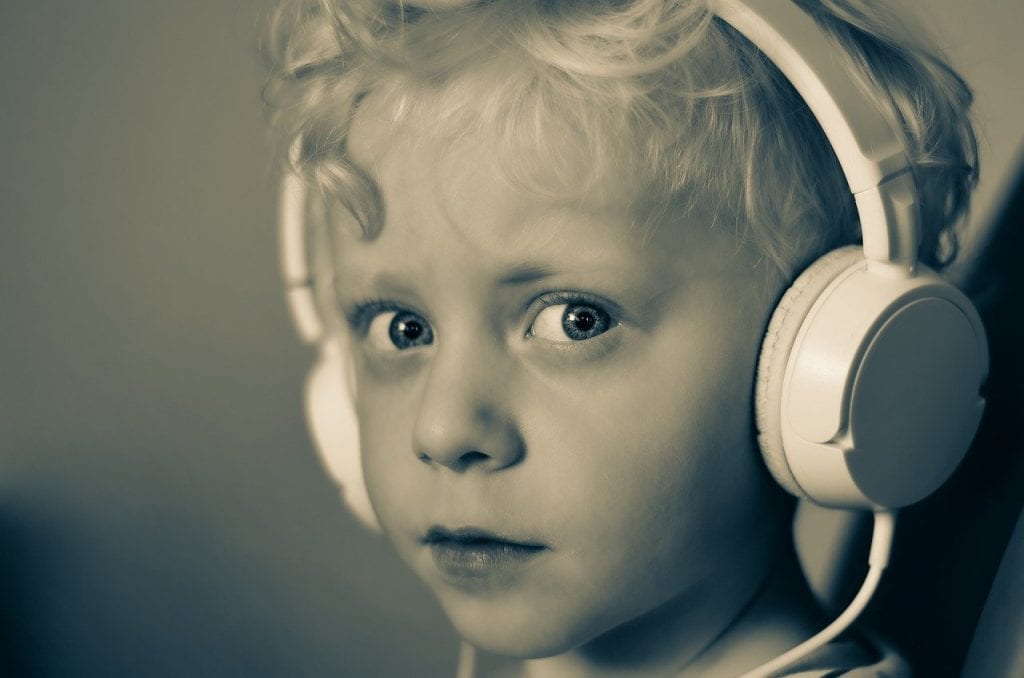
It Might Not Be Autism
The first thing to understand about 5-year-old sensitive to loud noises is that it may not be autism. Autism spectrum disorder is a very complex group of disorders that can affect children in many different ways. It can also cause a number of different types of symptoms, of which sensitivity to noises can be one. But that does not mean that all children with this type of sensitivity are on the autism spectrum. There are a number of different situations and conditions that might be related.
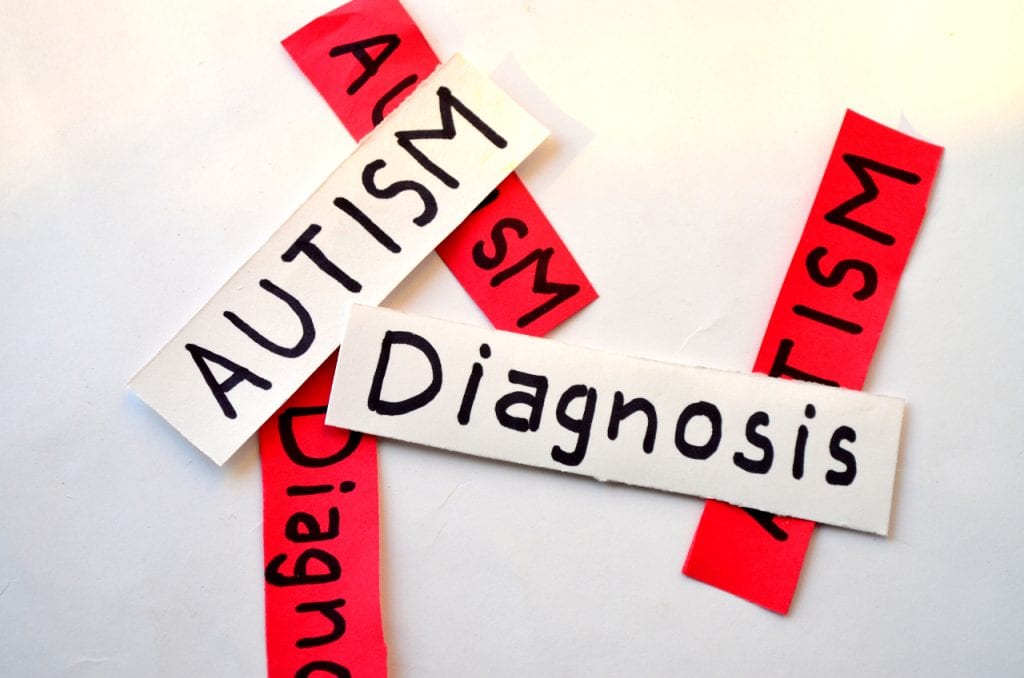
It Might Need Medical Attention
Some children experience sensitivity to sounds because of a medical condition that occurs within the ear. While many young children will react to loud noises, those who have recurrent hearing problems may respond more strongly. One of these, known as glue ear, can cause auditory deprivation. As a result, the return of sounds, and especially loud sounds, could result in more overwhelming responses. Other hearing disorders could have similar effects.
It Might Be About the Situation
Sometimes a reaction to a noise isn’t just about the fact that there is a noise, but the type of sound that occurs. A train whistle could be loud but might not elicit the same response as a busy supermarket that’s quieter, but also includes other stimuli. For some children, it’s not a noise alone that causes the reaction but all of the different events and stimuli that are happening simultaneously. This causes what is known as ‘sensory overload’ and could result in an intense response.
It Could Be Fear
Pay attention to the type of noise that causes the child to react. Is it always the same type of noise? If, for example, your child always reacts to the sound of the vacuum cleaner but doesn’t seem phased by the dishwasher or by a car horn, it could be that the fear is not noises, but the toy vacuum cleaner. The same is true for other sounds. Small children especially might show fear of a specific item or a particular type of noise (a whistle versus a howl) or specific volumes or pitches (extremely loud versus somewhat loud or high pitched versus low pitched).
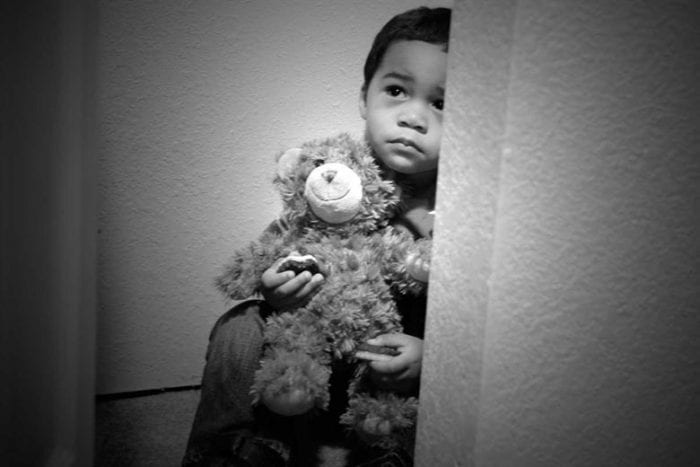
It Could Be About You
How do others react when the child shows fear? Are you more attentive when they are afraid of something? Does someone else drop everything to run to them? Do you brush off the anxiety or ignore it? It could be that the specific reaction occurs because the child is looking for a response or because they have not yet received the kind of reassurance that they need. If you or someone else has not helped them to overcome the fear, they may not know what else to do when presented with it. On the other hand, if they get more attention by exhibiting anxiety than they do in different situations, it could be an attention-seeking behavior.
5-Year-Old Sensitive To Loud Noises FAQs
Is sensitivity to loud noises a sign of autism?
The short answer is that sensitivity to loud sounds is a sign of autism. However, there are a number of other reasons that a child may have this type of sensitivity. Children who have hearing difficulties might struggle to hear some sounds and be startled by others. Some children are more sensitive than others in general, without it being related to autism. While sensitivity to loud sounds can be a sign, it is not a definitive way to know for sure if a child has autism.
How can I help my child with sound sensitivity?
If your child has sensitive hearing, you can help them by blocking out the sounds with headphones or earmuffs. You could also remove them from situations where they might be around something that is very loud, which could include fireworks, concerts, or even large gatherings. Highly sensitive children might also do better if you introduce them to loud situations more gradually or take breaks from those situations that can be overly loud. Showing patience and a willingness to help will be the most critical parts of helping your child.

What does it mean when a child is scared of loud noises?
There are a number of things that it can mean if your child is uncomfortable with noises. It could be a sign of autism; however, it could also be a sign of a sensitive child. If your child is very reactive to more than just sounds, it could be that they are sensitive overall. Anything loud or sudden could be startling to them. Sensory problems, including those that are at the low end of the autism spectrum or other conditions entirely, could cause a child to be scared by these types of noises.
What causes sensitivity to loud noises?
Sensory disorders, up to and including autism, hearing difficulties, and overall sensitivity, could cause a child to be sensitive to noises. If your child is sensitive to noises, it could have a number of different causes that are neurological or not. Working with a doctor to discuss these and other symptoms that they have would be the only way to determine the cause of their sensitivity.
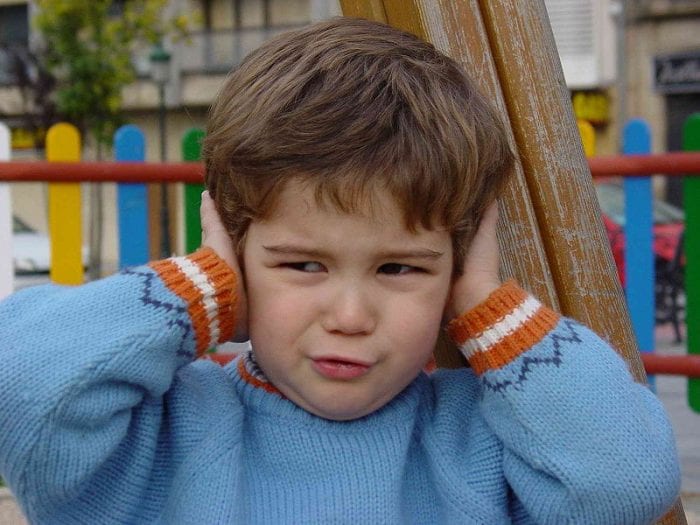
Why is my child sensitive to loud noises?
Your child could be sensitive to noises because they are a highly sensitive child. Children with autism might be considered highly sensitive; however, children who are not on the autism spectrum can also be regarded as sensitive. Children who are easily startled in general, including those who tend to get absorbed in tasks or who seem to ‘zone out,’ may seem to be highly sensitive to noises of all types and especially loud ones.
Why is my child sensitive to noise?
A child could be sensitive to noise for a number of different reasons. They might experience this sensitivity as a result of a neurological disorder, including sensory disorders like autism. They might be highly sensitive as a result of other factors or their personality. Some children are simply more sensitive than other children without a true cause for it.
Can a child have sensory issues and not be autistic?
Children can have sensory issues without being autistic. Though the general idea of autism is a specific disorder, it’s actually a spectrum of disorders with children placed at all different intervals along a line. Even still, it is possible for children to have sensory issues without being on this spectrum. There are a number of children who might simply be highly sensitive in general, and prone to more extreme reactions when it comes to sounds and more.
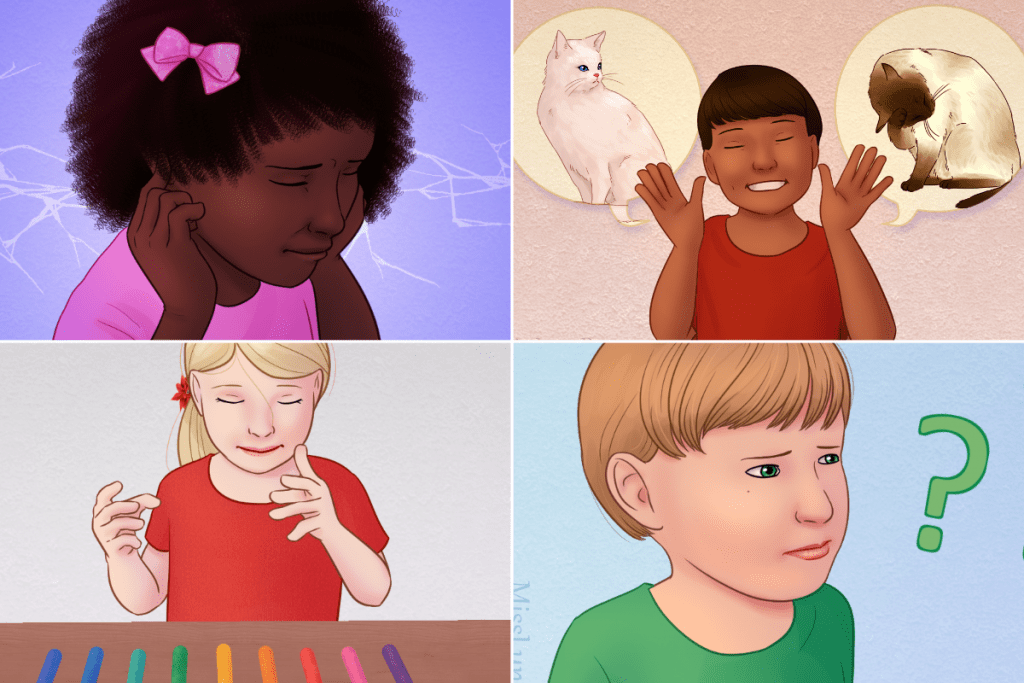
Is fear of loud noises a sign of autism?
A fear of loud sounds can be a sign of autism, though it’s not definitive enough to make a decision based on sounds alone. Rather, this fear could be a sign of a number of different traits for your child. They may be highly sensitive in general, or they might be prone to ‘zoning out,’ which can cause them to be startled by anything that ‘snaps them out of it.’
Is sensory sensitivity a sign of autism?
Sensory sensitivity can be a sign of autism, though it is not the only symptom that is used. Children must have several symptoms in order to be considered autistic, with sensory behaviors being one of the primary factors. Even still, this type of sensitivity can be a sign of a number of different situations or conditions for your child.
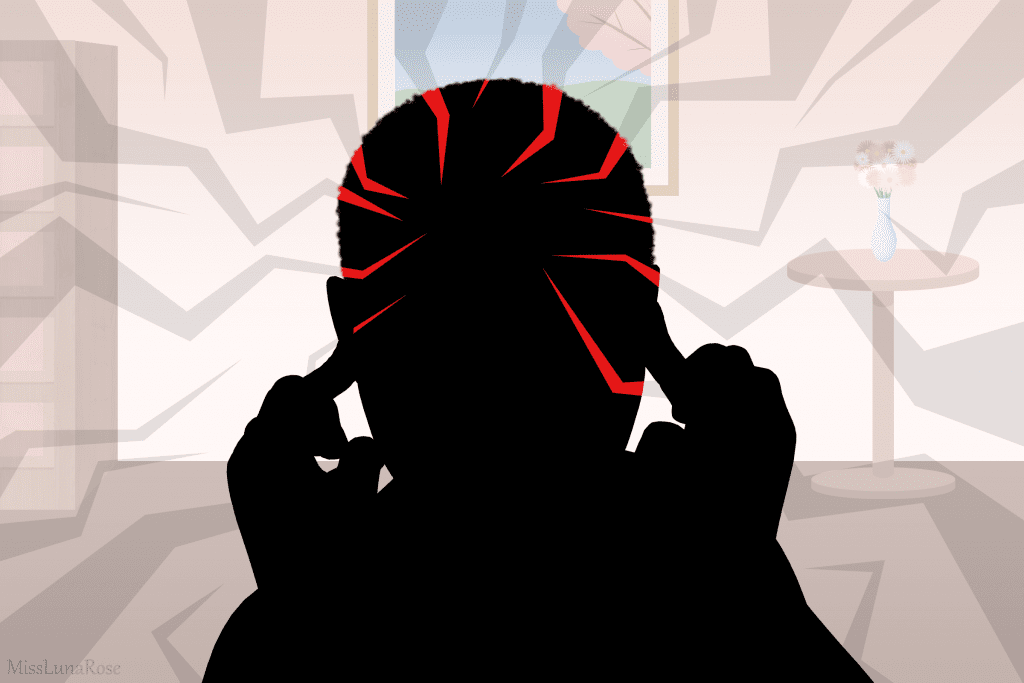
What causes sensitivity to sound?
Sensitivity to sound can occur for a number of reasons. A sensitive child may struggle as a result of placement on the autism spectrum disorder. They may also struggle with anything loud because of their own personality traits or because those types of sounds can jar them out of their concentration or their own thoughts. Similar to adults who can be startled when thinking hard about something, children can experience similar situations, for a number of different reasons.
5-Year-Old Sensitive To Loud Noises Other Resources
https://www.whattoexpect.com/grooming/toddler-ear-info/fast-facts-about-toddler-hearing.aspx
https://www.oregonlive.com/themombeat/2009/10/when_should_you_worry_about_yo.html
Last Updated on June 12, 2021 by Mary Cimeni
DISCLAIMER (IMPORTANT): This information (including all text, images, audio, or other formats on FamilyHype.com) is not intended to be a substitute for informed professional advice, diagnosis, endorsement or treatment. You should not take any action or avoid taking action without consulting a qualified professional. Always seek the advice of your physician or other qualified health provider with any questions about medical conditions. Do not disregard professional medical advice or delay seeking advice or treatment because of something you have read here a FamilyHype.com.